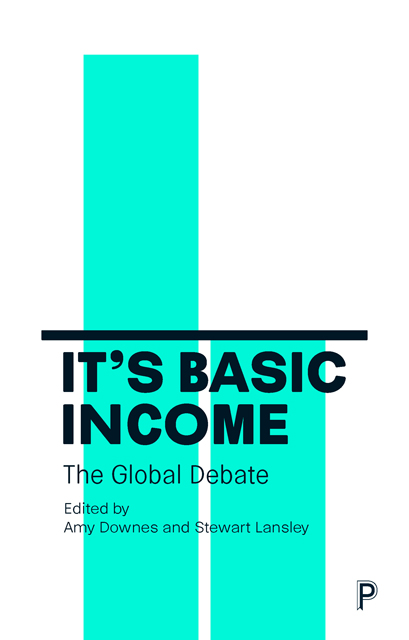28 - The libertarian case for universal basic income
Published online by Cambridge University Press: 11 April 2023
Summary
‘… there’s a good case to be made for having two distinct basic income type policies. One would be a small, truly universal cash grant … The other would be a less universal but more generous grant directed toward those individuals who fall below a certain specified threshold of economic sufficiency.’
Libertarianism is a political philosophy which holds the protection of individual liberty to be the highest political end. Because of this commitment, and because they regard the coercive power of government as one of the most serious threats to individual liberty, libertarians generally believe that the legitimate powers of the government are quite strictly limited. For some libertarians, this means that the most extensive justifiable state is a ‘minimal’ state devoted to the protection of individuals against force and fraud. Such a state will support a police force, a military, and a court system in order to protect its citizens’ rights of person and property. But that is all. Other libertarians (perhaps better referred to as ‘classical liberals’) believe in a somewhat more expansive role for the state – adding the provision of public goods and perhaps a basic form of social safety net to the list of permissible state activities. And still others (known sometimes as anarcho-capitalists or market anarchists) believe that the only permissible state is no state at all, and that whatever protective services individuals wish to consume must be purchased or otherwise obtained by voluntary, non-coercive means.
For the most part, libertarians are strongly opposed to any form of state-based welfare. For some, opposition to state-financed welfare is a matter of fundamental moral principle. ‘Taxation is theft’, they say, and so any redistributive measures that involve taxation are themselves a kind of theft, and therefore a violation of individual rights. Others base their opposition to the welfare state on more pragmatic considerations, holding that the problem with welfare is the effects it produces on taxpayers, recipients, and society as a whole. But whatever the source of their opposition, opposition to the welfare state is an essential tenet of libertarianism.
I think that view is a mistake, both historically and philosophically. As a matter of intellectual history, there are a number of important libertarian thinkers who have supported some form of welfare state.
- Type
- Chapter
- Information
- It's Basic IncomeThe Global Debate, pp. 150 - 154Publisher: Bristol University PressPrint publication year: 2018



